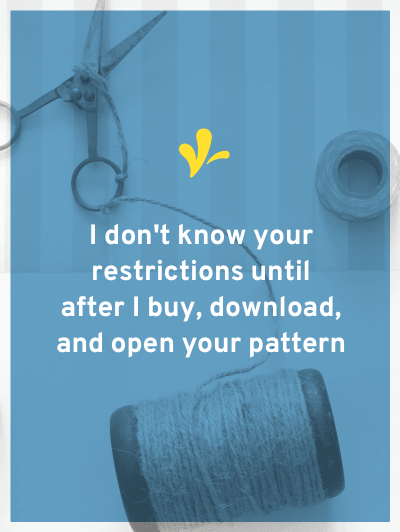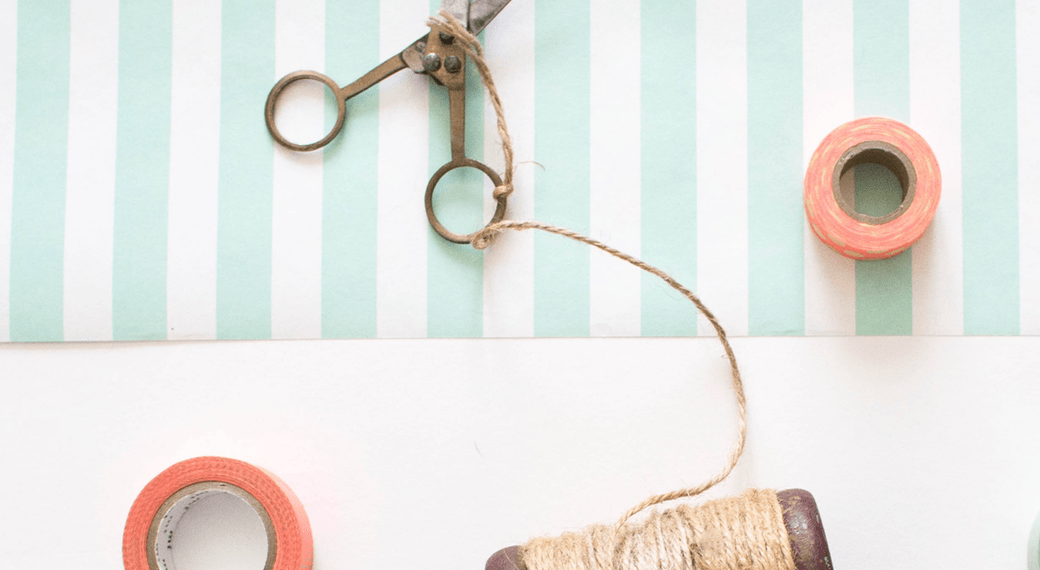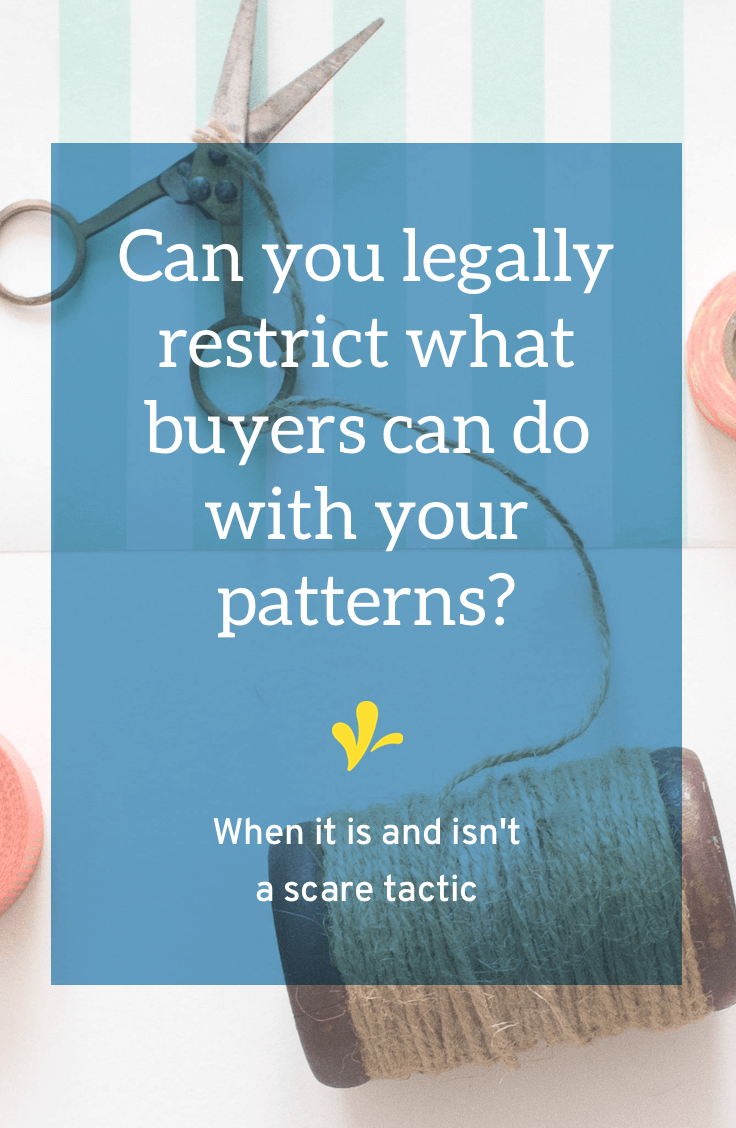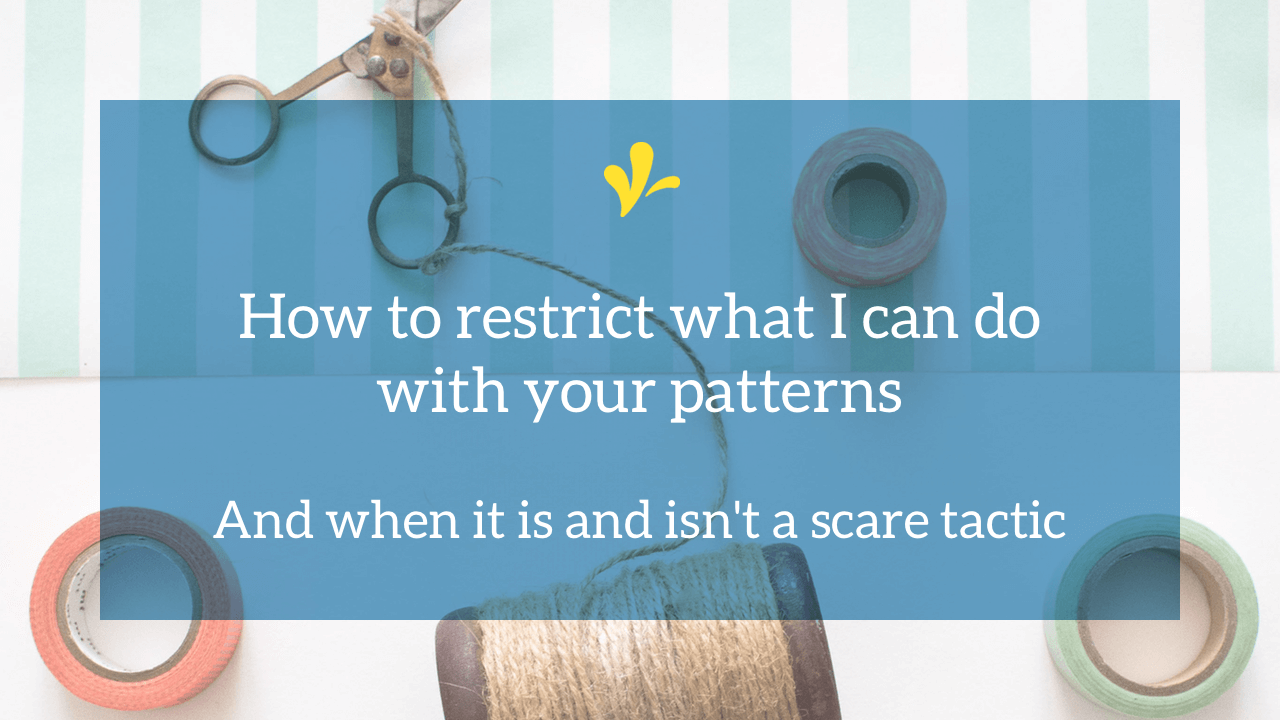I’m a huge knitter. I’ve always got a project going. In fact, right now I’m working on this cowl. I’ve got a shawl going as well, but the pattern is a bit involved and knitting one row seems to take forever, so I needed a break.
I knit because it keeps my hands busy. Over the years, I’ve done lots of knitting. I’ve done projects for others, guerrilla art installations, and projects for me. But these days, I don’t knit for anything except for gifts or for myself.
Because of this, I rarely care about the restrictions that crop up on the patterns I buy or download.
However, these restrictions make me frown. Mostly because they often only function as a scare tactic. And most won’t hold up in court.
Contracts, not copyright
So when Abby Glassenberg sent me this article about copyright and sewing, it got me paying attention to pattern restrictions again. And it surprised me how many had restrictions.
I think the post does a good job dispelling some of the myths around sewing patterns and copyright. (If you want my take, you can watch this video.)
But, she makes it seem like there is no legal way to put restrictions on your patterns.
While it’s not something that I think is a smart business move, it’s also not 100% true.
There is an argument that you can restrict usage if you give purchasers a license to use your pattern, rather than sell it to them.
But the only way to make this happen is if I know the restrictions before I purchase.
You can restrict my usage, but only if you make sure that I know the restrictions before I purchase.
And these restrictions comply with contract law, not copyright law. And contract law requires three things for a valid contract:
- offer
- acceptance
- exchange
Restricting use of your sewing patterns

However, if you want to restrict how I can use that item (AKA license your pattern to me, not sell it to me), then you need to make this clear in your offer.
I need to know what I’m agreeing to when I hit the “Buy” button.
This is where many of you get tripped up. Because I don’t know your restrictions until after I buy, download, and open the pattern.
I need to know what I’m agreeing to when I hit the “Buy” button. But I don’t know your restrictions until after I buy and open the pattern.
So what you need to do is make the restrictions clear before purchasing. I’d suggest you do this in two ways:
- in your product description
- requiring them to check a box that spells out the restrictions before purchase
This way, it’s clear what restrictions I’m agreeing to before I make my purchase.
How this impacts pricing
If you plan on placing restrictions, then this should be accounted for in pricing. Traditionally, when it comes to licensing the broader the license the more it costs. The more restrictive the license, the less you’ll pay for it.
So if you are going to restrict your buyers by only allowing personal use, then your price should reflect that.
If you want to go this route, I think you also need to consider if you will ever bother enforcing these restrictions.
- Are you willing to find and chase down Etsy sellers that are selling products made with your patterns?
- Are you willing to hire an attorney to attempt to enforce this license?
- Are you willing to invest your/staff time on this?
If not, then what’s the business purpose behind this restriction?
How you can easily apply this today
- Update one product description with any restrictions you have for that pattern.
- Research if you can easily add a checkbox to your shopping cart page.
Do you know someone who sells patterns with restrictions? Share this post with them. And give them the information they need to make their restrictions enforceable.

Hi! I’m Kiff! I believe that you can have ease in the legalese of running your creative business.
Each week, I send out an email to help you confidently strengthen your business’ legal foundation by sharing my experiences and knowledge.
Get tips from your friendly legal eagle…
Your privacy is important to us. Learn how we protect it here.



